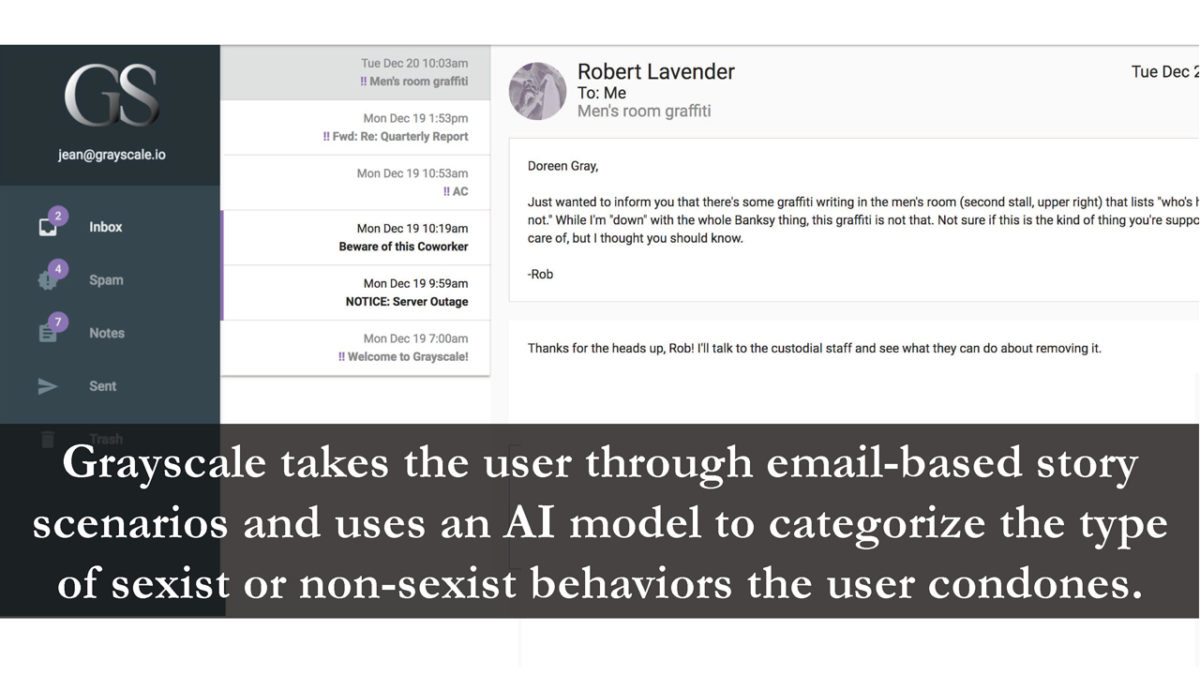“The computer as a medium offers a unique expressive palette for storytellers. With it, we can build models of crucial and moving issues in our world. Grayscale implements such a model to participate in the dialogue around sexism, sexual harassment, and sexual assault.”
— D. Fox Harrell, Project Lead and Professor of Digital Media and Artificial Intelligence, Comparative Media Studies/Writing (CMS/W) and Computer Science and Artificial Intelligence Laboratory (CSAIL), MIT; Director, Center for Advanced Virtuality, MIT
The interactive narrative Grayscale provokes users to reflect critically on sexism in the workplace, whether overt hostile acts or more subtle attitudes. In Grayscale, players take on the role of a newly hired human resources manager who must navigate ethical tensions around sexism.
Developed for the Chimeria platform, Grayscale immerses users in a streamlined, aestheticized interface made to resemble a corporate e-mail client. Over the course of an in-game week, users read and respond to e-mails from co-workers with varying outlooks in a toxic, melancholy workplace. The narrative uses an underlying artificial intelligence model to trace the path of user decisions with an eye to whether they support various types of sexism or not. The outcome of the game depends on this trail of choices.
The aim of Grayscale is neither merely to simulate the experience of a woman in the workplace nor to create a didactic training tool. Instead, the program uses storytelling to catalyze reflection upon the systematic way in which sexism operates and to reveal the tensions around speaking out.
Grayscale emerged from an initiative called the Advanced Identity Representation Project, funded by the National Science Foundation and led by D. Fox Harrell. The project was a response to the issues raised by the #MeToo movement.

Project lead:
D. Fox Harrell, Professor of Digital Media and Artificial Intelligence, Comparative Media Studies/Writing (CMS/W) and Computer Science and Artificial Intelligence Laboratory (CSAIL), MIT; Director, Center for Advanced Virtuality, MIT
Collaborators:
Pablo Ortiz, Graduate Research Assistant, MIT
Codevelopment Team: Sofia Ayala, Laurel Carney, Elizabeth Carre, Peter Downs, Chong-U Lim, Jackie Liu, Loren Sherman, Yao Tong, George Tsiveriotis, Maya Wagoner, Annie Wang, Nadia Wiwatwicha
Launched: 2017
On view: Experience the project online
More information
MIT Center for Advanced Virtuality
MIT News: 3Q: D. Fox Harrell on his video game for the #MeToo era


